One Prime Minister, two deputies: NZ finally gets new government
After 41 days of electoral limbo, Christopher Luxon has formed a three party coalition; Winston Peters becomes deputy PM for the first 18 months of government, David Seymour for the second.
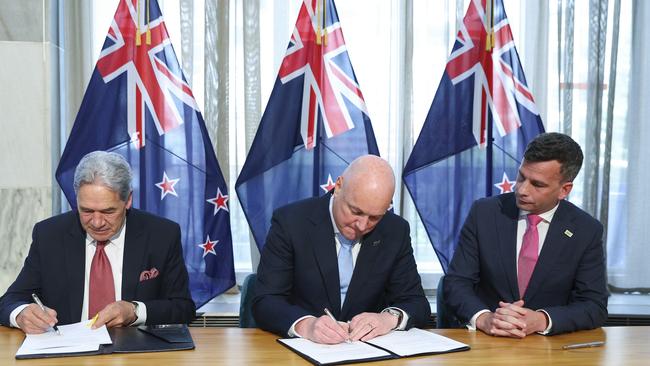
After 41 days of electoral limbo, incoming New Zealand Prime Minister Christopher Luxon has finally announced his new government, the first three party coalition in NZ’s history.
In another first, coalition partners David Seymour and Winston Peters will share the role of deputy Prime Minister. Mr Peters, the maverick leader of the New Zealand First party, will take the role for the first half of the government’s three year term while Mr Seymour, leader of the libertarian ACT party, will be deputy PM for the second half of the term.
Mr Peters also becomes Foreign Minister – a role for which he has garnered global respect in past governments. Mr Seymour becomes Minister for Regulation and the Associate Minister of Education, Finance and Health. National deputy leader Nicola Willis becomes Finance Minister – a role the business community had hoped would go to Mr Seymour.
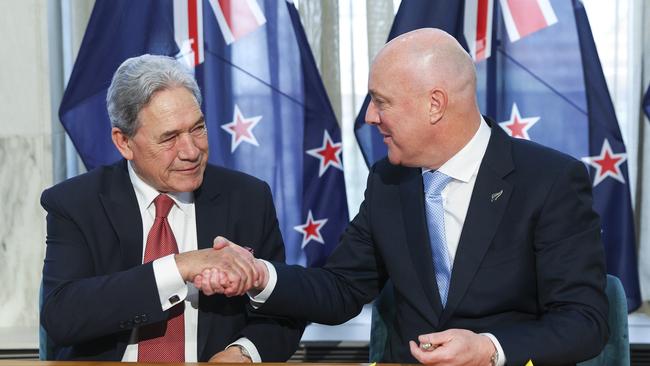
Additionally, each of the coalition partners will have three MPs in a 20-strong cabinet, while National has 14 cabinet ministers.
Announcing his new government, Mr Luxon said with obvious relief: “We’re ready to go to work for all New Zealanders.
“New Zealanders want change that makes this country even better and this coalition government will deliver it,” he added. “We cannot wait to get stuck in.”
Mr Seymour and Mr Peters, who didn’t bother to hide a mutual loathing during the election campaign, described the three weeks of coalition negotiations as “robust” and “difficult.”
However they declared themselves satisfied with gains each had made during coalition negotiations, and Mr Seymour said respect had grown between the three leaders during their talks.
Mr Peters thanked Mr Luxon for the chance to form a government that was “so needed”.
Many decisions announced by the new government on Friday were supported by all three parties. In particular, they all supported dumping the previous Labour government’s more contentious legislation pertaining to the Maori population, including co-governance – shared power with unelected Maori tribes – from the delivery of public services such as water infrastructure.
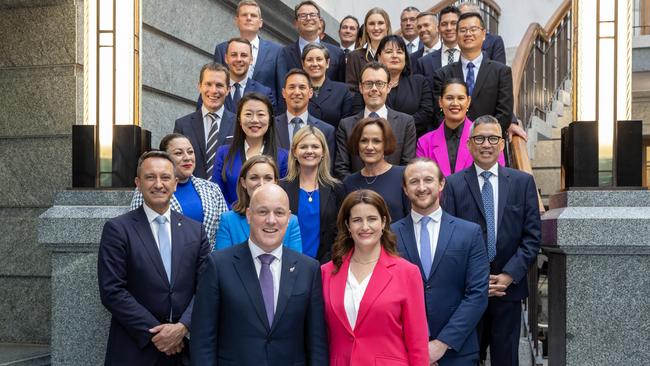
The devolved Maori Health Authority, which has been widely criticised, will be scrapped and
all public service departments will return to having their primary name in English, except those specifically related to the Maori population. In addition, departments have been told that public services be provided on the basis of need rather than race.
A “redline” ACT policy to have a referendum on the principles of the Treaty of Waitangi – NZ’s founding document – has met a compromise, with a Treaty Principles Bill going to Select Committee. However, National has not committed to legislating a referendum – only to the process leading to it.
National also agreed to remove all references to the “principles of the Treaty from law.
NZ First also got its red line policy – a Covid-19 inquiry – over the line, which would probe lockdowns, vaccine procurement and efficacy and the justification of NZ’s draconian pandemic regulations.
National was forced to concede policies to get across the finishing line, including its contentious foreign property buyers’ tax which economists had rejected, and which Mr Peters opposed on the basis that it allowed foreigners to buy NZ property.
Mr Luxon said his government was committed to uniting a divided country, and insisted the three parties would work constructively together although disagreements would always arise.
“We have massive alignment on the goals,” he said.
“Despite the challenging economic environment, New Zealanders can look forward to a better future because of the changes the new Government will make,” Mr Luxon said.
“New Zealanders have put their trust in us. In return, we trust New Zealanders. We believe in this country. We are ambitious for it. We know that, with the right leadership, the right policies and the right direction, together New Zealanders can make this an even better country.”


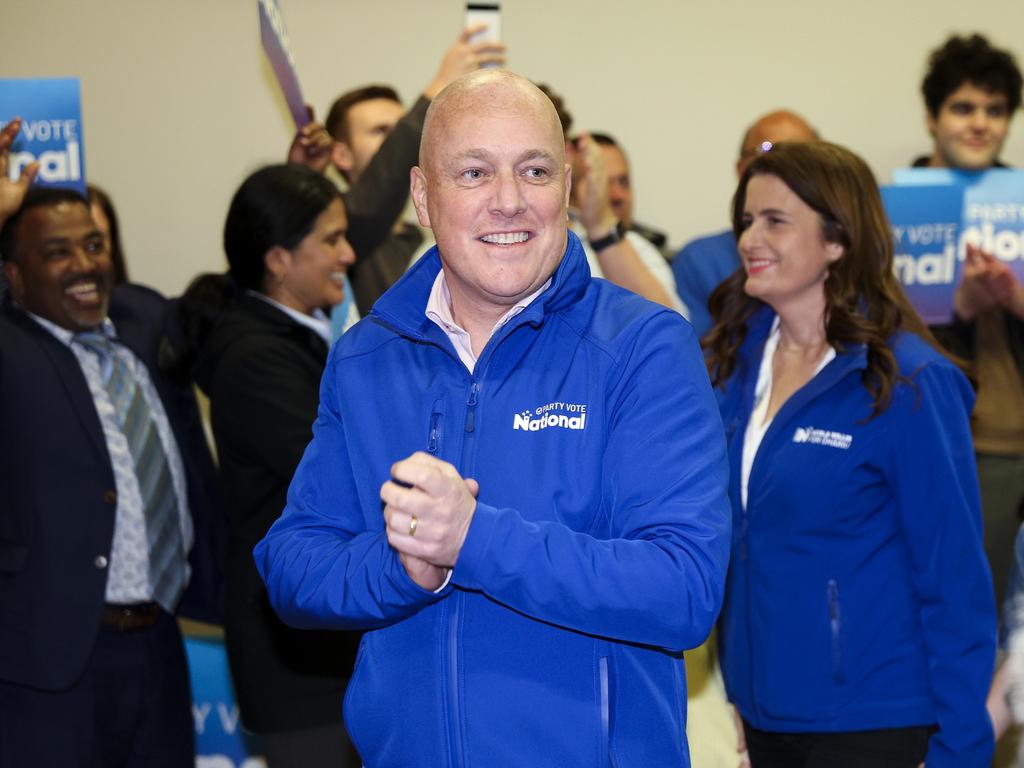
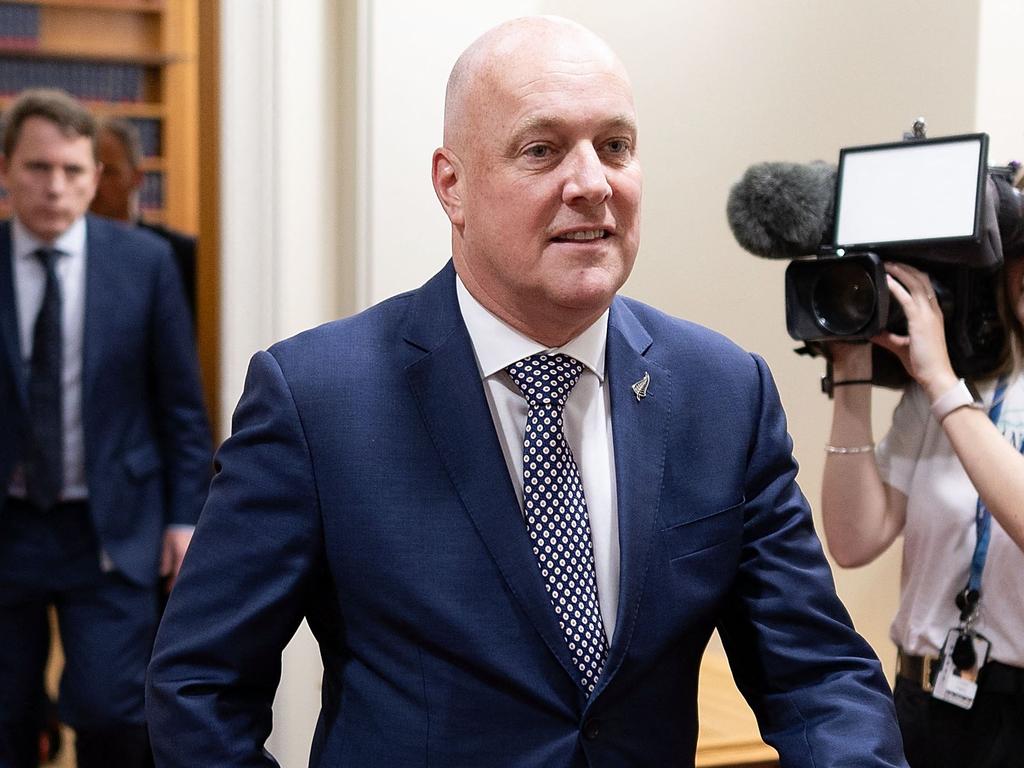
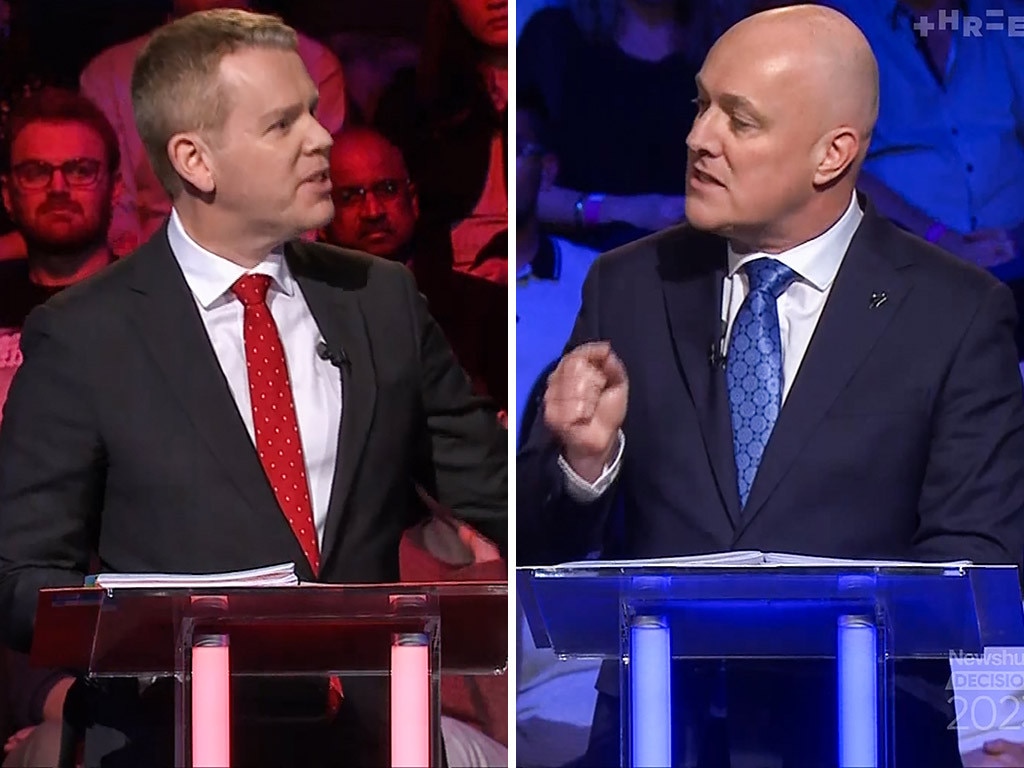
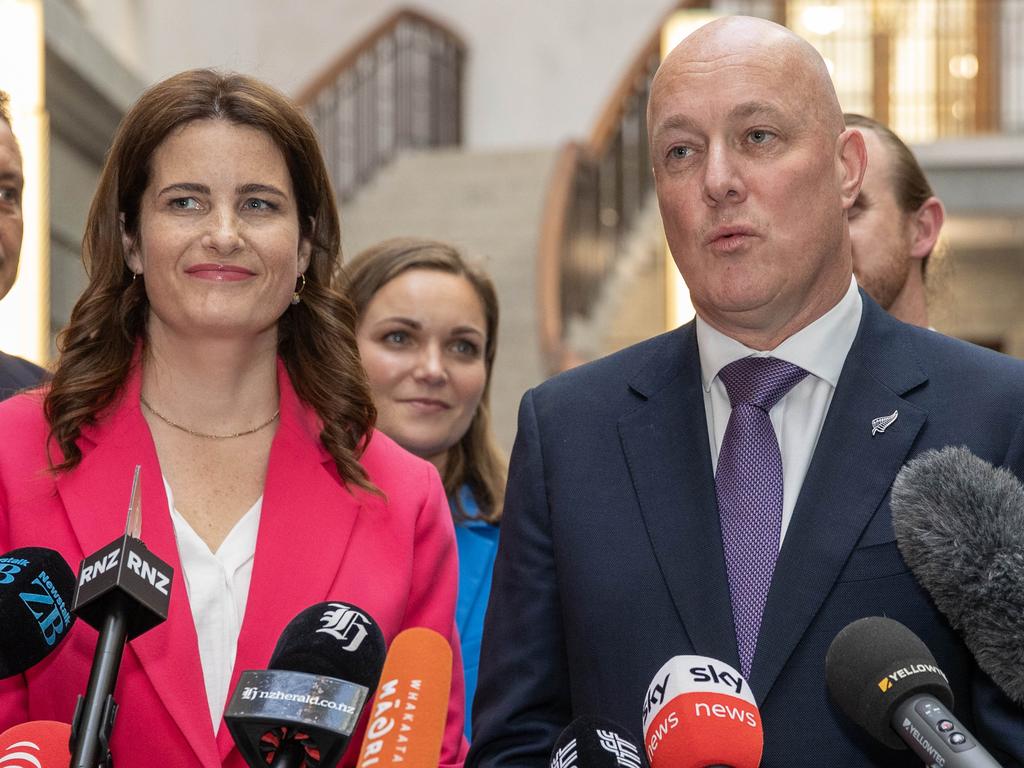


To join the conversation, please log in. Don't have an account? Register
Join the conversation, you are commenting as Logout